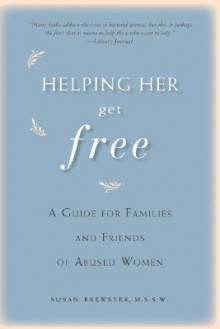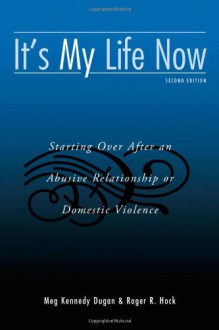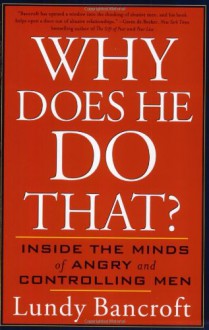
I write this review as a member of Rosie’s Book Review Team (authors, if you are looking for reviews, check here), and I freely chose to review an ARC copy of this novel.
This is another great find by Rosie and although I wasn’t familiar with the author (who also publishes under her real name, Denise Deegan), I’m convinced this won’t be the last time I read one of her books.
The description of the book does a good job of highlighting the main aspects of the plot: we have Grace, a woman escaping a difficult and dangerous marriage, with her teenage children, Jack and Holly, hopeful that returning back to the village where she grew up will offer them all a second chance. There awaits her father, Des, who is going through a major change in his life (he’s a recently retired family doctor suffering from early stages of Parkinson’s disease) and doesn’t know the ins and outs of Grace’s decision. Moving from Dublin to a small and sleepy village comes as a shock to Grace’s children, and she finds it difficult to confront the gossip and the expectations of having to step into her father’s shoes. But, this novel about second chances builds up slowly and we see that although not everything is ideal and there are misunderstandings and difficulties to be ironed out, Killrowan, the place and its community, is a place worth sticking with.
The novel touches on a variety of themes: abusive marriages and family relationships (and how difficult it is to walk out); starting over in a different place, picking up friendships and relationships, and rebuilding one’s life; the struggles of dealing with a chronic and debilitating illness; how much one’s self-identity can be enmeshed with our profession and our job; the differences between a big city and a small village; being a family doctor in a rural/village location; how teenagers feel when they have to move and be uprooted from school, friends…; the role animals play in helping us fit in a place and feel rooted; small community life, with hits highs and lows; and even a hint of possible romance(s). There are funny moments, plenty of heart-warming episodes, some scary and nasty shocks as well, some sad and touching stories, and even medical emergencies and action scenes thrown in. In her acknowledgements, the author highlights the process of her creation and her research and having read the novel, I can confirm that it has paid off. She manages to weave all the topics into a novel that brings the characters and the village to life, and I was delighted to read that she is thinking about a sequel. I’d love to go back to Killrowan and revisit the places and the characters that have also become my friends.
Alexander creates multi-dimensional characters easy to relate with. Grace doubts herself and is forever questioning her actions and doubting other people’s motive. Her self-confidence has suffered after years of being undermined and abused by her husband, and she feels guilty for uprooting her family, while at the same time experiencing the thrill of freedom. The novel is written in deep third person and allows us to see the action from different points of view. Grace’s point of view dominates the book, although we also see what her father, Des —another fantastic character who treads carefully and whose life suddenly regains a meaning when his daughter and grandchildren come to live with him— thinks and does, how both of Grace’s children, Jack and Holly, feel, faced with a completely different environment (Jack was the popular sporty type, while Holly had a hard time fitting in and had no friends other than her dog). We meet some fantastic characters in the community, like the scary (at least at first) receptionist at the doctor’s surgery; the butcher’s wife (a gossip with a big heart); Grace’s old pals, Alan (with some secrets of his own) and Ivonne; Benji, a wonderful dog that adopts the family; a handsome American writer; the wife of a local magnate (who reminds Grace of herself); Des’s old love; the local policeman; Grace’s partner at the doctor’s surgery and some of her patients, although not everybody is nice, don’t worry. We also get brief snippets of the events from some of the other character’s perspectives, not only the Sullivans, and that gives us access to privileged information at times. Although the different characters’ points of view aren’t separated by chapters, they are clearly differentiated, and I experienced no confusion while reading, quite the opposite. I enjoyed the opportunity to share in the bigger picture.
The writing style is fluid and flows well, without rushing us through the events, allowing us time to reflect upon events, enjoy the wonderful settings (the sea, the beach, the island, the pub…) and become acquainted with the location, the emotions, and the characters. The author knows well the area, and although Killrowan doesn’t exist (or, at least I couldn’t find it), it feels real (and some of the comments and attitudes Grace and her family experience reminded me of similar events I had witnessed in a small village I used to visit when I was younger) and it leaps from the pages. I confess to enjoying the style of the writing and feeling emotionally engaged with the story (I’d recommend having tissues handy). I’ve selected a couple of quotes to share, but as usual, readers might want to check a sample of the book to see if it suits their taste before purchasing it.
Here Grace is thinking about the family dog and how his death gave her the strength to finally leave her husband.
Benji was more than a dog. He was family. And her defender. Tiny little ball of fur rushing to the rescue. Or trying. Tiny little ball of fur that brought so much comfort to all three of them, Holly especially. Benji knew when they needed love and he gave it in spades.
Here Des is thinking about retirement.
What fool started the tradition of watches as retirement presents? Any thinking person would know that the last thing a man would want is to count all the time he now has on his hands.
Holly had just told her brother that their mother wanted to start over, and Grace realises her daughter is right.
Minutes ago, it had been to escape Simon, shake him off. But escaping Simon is still all about Simon. Grace sees that now. What she must do is start over. Because that is about Grace.
The ending is more than satisfying as well. Yes, not everything is settled and sorted in the end, but this is a book about new beginnings, and we leave the Sullivans and Killrowan to carry on merrily, getting to know each other and discovering what new changes and challenges life will bring. As I mentioned above, the author hints at a possible sequel, and I hope it comes to be.
This is a novel full of heart, friendship, a strong sense of community, and also heartache and personal growth. It is inspiring and comforting in these times when we have been obliged to live pretty enclosed lives. I agree with the TV series mentioned in the description (Call the Midwife one of my favourites), and I’m sure fans of any of those will enjoy this novel, which fits perfectly in the feel-good category, although that does not mean it hides from the most unsavoury aspects of life. There are menacing and dark moments, none too explicit, and I’d recommend it to anybody who enjoys stories with a heart, fond of Ireland and stories with an Irish background, and those who want a gentle read full of wonderful characters and a memorable community we’d all be happy to join.

 Log in with Facebook
Log in with Facebook 









